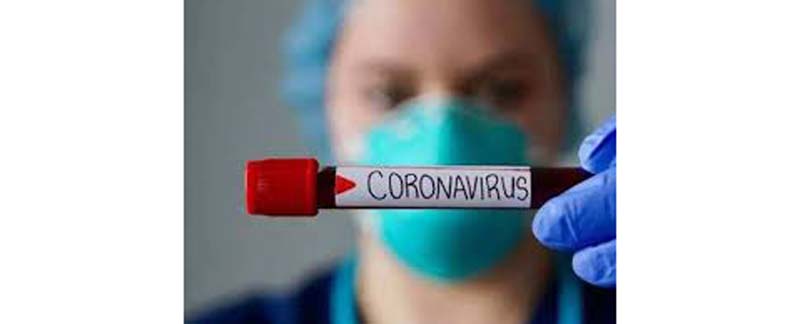WASHINGTON: Cats can become infected with the novel coronavirus and pass it to other cats, according to a new study which says it is still unknown if the felines can transmit the virus to humans.
In the study, published in the New England Journal of Medicine, scientists administered the coronavirus, SARS-CoV-2, isolated from a human patient to three cats, and monitored the felines in the lab.
The researchers, including those from the University of Wisconsin-Madison in the US, swabbed the nasal passages of the cats, and were able to detect the virus in two of the animals.
Within three days, they said they detected the virus in all of the cats.
A day later, the scientists placed another cat in each of their cages, and did not administer SARS-CoV-2 to these new cats.
The researchers then took nasal and rectal swabs from all six cats each day to assess them for the presence of the virus.
They found that within two days, one of the previously uninfected cats was shedding the virus, which could be detected in nasal swabs.
Within six days, the scientists said all of the cats were shedding virus.
However, they said none of the rectal swabs contained SARS-CoV-2.
According to the scientists, each cat shed SARS-CoV-2 from their nasal passages for up to six days.
They said the virus was not lethal, and none of the cats showed signs of illness.
Ultimately, all the cats cleared the virus from their bodies, the study said.
“That was a major finding for us — the cats did not have symptoms,” said Yoshihiro Kawaoka, study co-author from the University of Wisconsin-Madison.
The findings, according to the researchers, suggest that cats may be capable of becoming infected with the virus when exposed to people, or other cats positive for SARS-CoV-2.
A study published earlier in the journal Science had also shown that cats could become infected with the virus.
“It’s something for people to keep in mind,” said Peter Halfmann, study co-author from the University of Wisconsin-Madison.
“If they are quarantined in their house and are worried about passing COVID-19 to children and spouses, they should also worry about giving it to their animals,” Halfmann said.
The researchers advised that people with symptoms of COVID-19 avoid contact with cats, suggesting that cat owners keep their pets indoors.
They also expressed concern about the welfare of animals.
According to the scientists, humans remain the biggest risk to other humans in transmission of the virus.
There is no evidence that cats readily transmit the virus to humans, nor are there documented cases in which humans have become ill with COVID-19 because of contact with cats, they said.
The study cited confirmed instances of cats becoming infected because of close contact with humans infected with the virus.
It also mentioned cases of several large cats at the Bronx Zoo in the US which also tested positive for the virus.
In one of the cases cited by the researchers, a cat had shown mild signs of respiratory illness, and was expected to make a full recovery.
“Animal welfare organisations are working very hard in this crisis to maintain the human-animal bond and keep pets with their people,” said Sandra Newbury from the University of Wisconsin-Madison.
“It’s a stressful time for everyone, and now, more than ever, people need the comfort and support that pets provide,” Newbury said.
While the current study helps confirm experimentally that cats can become infected, she said the risk of natural infection in the felines from exposure to SARS-CoV-2 seems to be quite low.
“Cats are still much more likely to get COVID-19 from you, rather than you get it from a cat,” said Keith Poulsen, director of the Wisconsin Veterinary Diagnostic Laboratory.
Poulsen recommended that pet owners first talk to their veterinarians about whether to have their animals tested.
However, he added that there is a delicate balance of needing more information through testing, while the resources and clinical implications of positive tests are still limited.
If a pet lives indoors and is not in contact with any COVID-19 positive individual, the scientists said it is still safe to cuddle and interact with the animal.
They said COVID-19 positive individuals should limit interactions with their pets to protect them from exposure to the virus.
“As always, animal owners should include pets and other animals in their emergency preparedness planning, including keeping on hand a two-week supply of food and medications,” Poulsen said.
“A better understanding of the role cats may play in the transmission of SARS-CoV-2 to humans is needed,” the scientists concluded in the study. (AGENCIES)
Trending Now
E-Paper


